What I’ve been reading this month
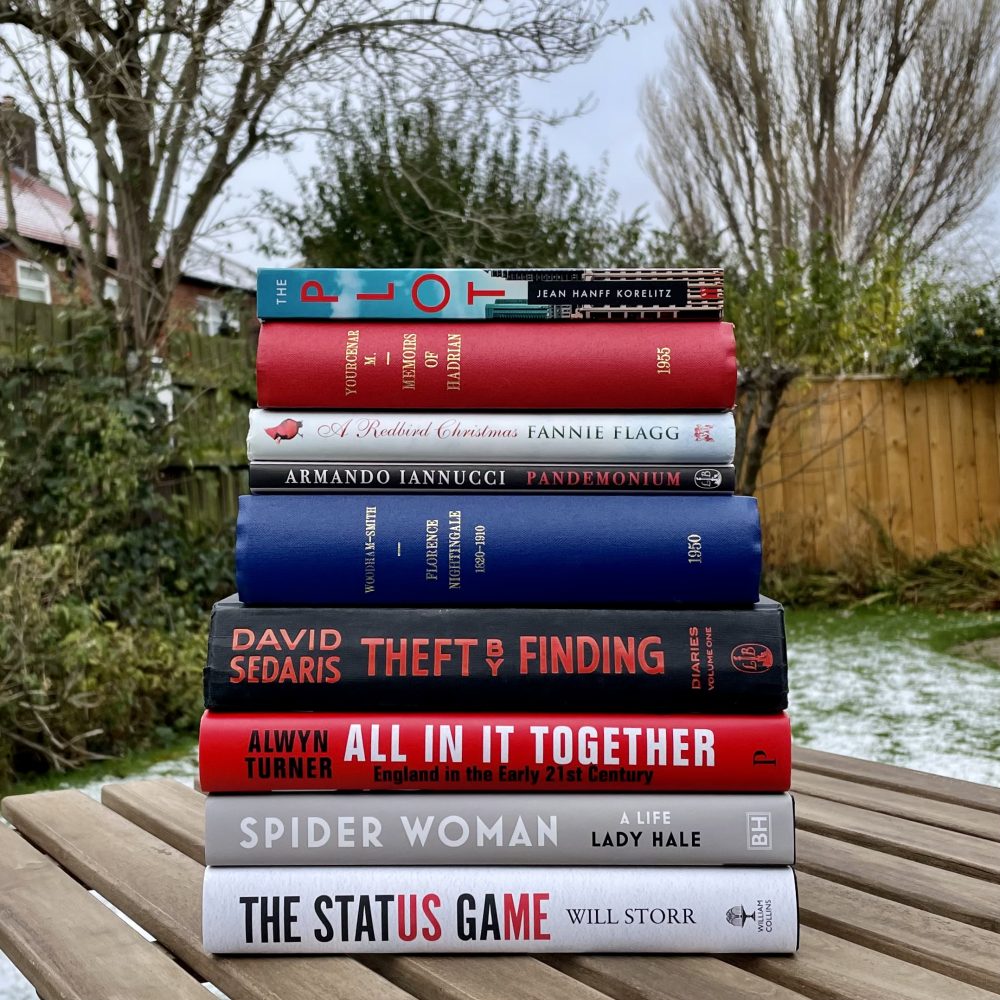
This has felt like a month where I haven’t read much, but the above photo suggests otherwise. I think it is just that this has been a very long month: it seems like a very long time since I read some of these!
Florence Nightingale by Cecil Woodham-Smith
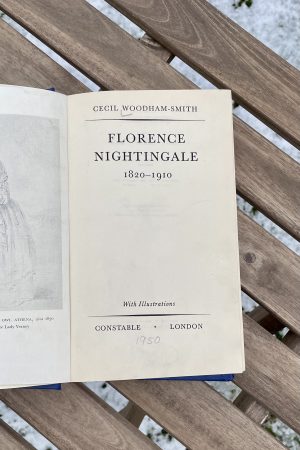
This 1950 biography was first recommended to me in a conversation seven years ago, and has cropped up with some regularity since. The recommendation has always been accompanied by the comment that this book is hard to get hold of as it is out of print. Copies do now seem to be available on Amazon, but I read a copy from The London Library.
It is astonishingly good.
Firstly, and perhaps most importantly, the subject of this biography was clearly remarkable. I hadn’t previously appreciated the full breadth of Nightingale’s achievements or the strength of her character, and I was blown away.
Secondly, this is brilliantly written. The prose is exact, the subject matter is well-organised and clearly explained, and the depth of the underlying research almost drips off the page. It feels like it could have been published today, and yet is a little over seventy years old. This is one of those biographies that gives real insight into the character of the subject, and draws out clear lessons from their life: it is so much more than a list of facts. I can scarcely believe that this was Woodham-Smith’s first history book: hers was clearly a remarkable talent.
Perhaps those who know a little more about Nightingale’s life would take less from this than I did, but this is one of my favourite books of the year.
The Status Game by Will Storr
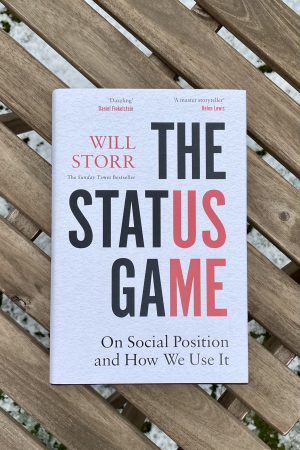
I’ve raved about Will Storr for a long time: his talent as a writer and a journalist is truly remarkable, and he deserves every accolade. His byline on one of his signature long-form newspaper or magazine articles guarantees a fascinating read and new insights, even if the subject at hand isn’t something that appears immediately interesting.
It’s therefore no surprise at all that I loved this recently published book of his about social status and how it drives human psychology. His argument is that the acquisition of social status drives everything we do, without our realisation, and even when we believe we are acting altruistically. We all want to be heroes.
As in all of his writing, Storr takes a broad view of his topic. His discussion encompasses serial killers, social media ‘celebrities’, the history of religion, and (slightly less convincingly) the rise of the Nazis. He writes very interestingly on psychology, and how each person’s perception of the world differs markedly. Storr’s storytelling style holds the text together, with an appreciable dash of wry humour.
Storr’s insights always live long in my memory, perhaps because I enjoy his writing so much, and perhaps because of his memorable storytelling style.
While I loved this book, I’m not sure whether it’s the first I’d recommend to people new to Storr’s writing as his central thesis (while convincing to me) might prove a bit of a barrier: I’d perhaps suggest that Selfie is the best starting point (or his reams of journalism).
Spider Woman by Lady Hale

This recently published autobiography by the former President of the Supreme Court of the United Kingdom was absorbing and inspiring.
This is Lady Hale’s account of her professional life, from her time at school and through her legal career. Her passion for her subject shines through on every page: there are not many people who could be so excited by an exam question as for it to feature in their autobiography, but it happens in here. Her enthusiasm is infectious. It is clear, too, especially from Hale’s accounts of complex family law cases, how much she is interested in the effects of the law on “real people’s lives”.
Beyond her childhood, Hale touches only very lightly on her personal life, though I was moved by the deeply personal “afterthoughts”.
Mostly, though, I found this book inspiring. Hale’s dedication to her profession, and her strength and stamina—even in the face of endless sexism—are remarkable.
A Redbird Christmas by Fannie Flagg
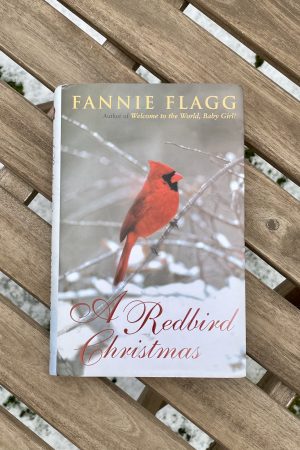
This 2004 short novel was another recommendation from my friend Julie, who previously recommended Flagg’s Welcome to the World, Baby Girl! which I enjoyed earlier this year.
This is an inconsequential but heartwarming story about a dying man moving from a city to a small rural town in the southern United States. It’s a book that all about generating warm feelings with a gentle pace, straightforward plot and a cast of entirely good-natured characters (one of whom is a redbird).
This isn’t a book with any great life lessons or new insights into character; rather, it’s a lovely, heartwarming yarn which I found to be a very relaxing read.
Theft by Finding by David Sedaris

This is the American humourist’s first volume of diary extracts, published in 2017 and covering 1977 to 2002. If you are familiar with Sedaris’s work, you’ll know what to expect: wry but insightful observations on growing up in the USA, plus life in Paris and the UK.
As you might expect, I found Sedaris’s earlier writing (before he began writing professionally) less engaging than his later work, but I enjoyed this nevertheless.
Pandemonium by Armando Iannucci
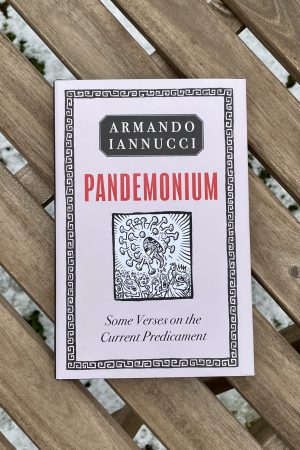
Published this month, this is Iannucci’s parody of an epic poem telling the story of the UK Government’s response to the covid-19 pandemic. It is brief, and yet by turns silly, quotable, depressing and very funny. Andy Riley’s illustrations are quite brilliant, fitting the tone and content of the book while also adding their own dimension.
However, I think the fact that every day at work Is still dominated by the pandemic means that I don’t have the psychological distance from recent events to enjoy this to the full.
The Plot by Jean Hanff Korelitz

This recent publication is one of six novels by Korelitz, and the only one I’ve read. The novel follows Jacob ‘Finch’ Bonner, a down-on-his-luck author who we first meet as a teacher on a writing programme.
An irritatingly over-confident student of Bonner’s has a plot for a book which he considers to be guaranteed massive literary success. The student outlines the plot to Bonner, and then dies before finishing his work, only a few pages of which Bonner has seen. Bonner then appropriates the student’s plot without attribution, has an incredible hit, and begins receiving threatening messages from someone who knows his ‘terrible secret’. This is standard thriller territory.
I picked this up because of reading endless rave reviews. I was familiar with the outline of the plot, and thought it would be fun to read a book which, through its own premise, would have to cleverly work its way around revealing the plot of the book concerned. After all, it wouldn’t be possible to write a convincing novel about a spectacular, world-altering book and also reveal the contents of that book. I assumed it would need to be tightly constructed, probably with a dose of humour, to build tension around something that could never be convincingly revealed.
It turns out that the book isn’t nearly that clever. The character’s plot is explored at length, and we even get extracts from the character’s book. The plot of the character’s book is also pretty standard thriller fare, which means that it doesn’t really support the superstructure the novel builds around it.
Korelitz also introduces some discussion about the morality of retelling stories, comparing this with cultural appropriation in a way which seems to misunderstand the long tradition of the former and the ethical challenge of the latter.
This was a good holiday thriller, but wasn’t nearly the complex, layered, literary novel the reviews (and perhaps my preconceptions) had led me to expect.
All In It Together by Alwyn Turner

This is a recently published history of UK politics in the years 2000 to (roughly) 2015, told mostly from the perspective of the newspaper coverage of the time. Turner tries to place the politics in a context though plentiful references to popular media.
I was surprised that I found this a bit of a slog. For example, Turner devotes many more pages to Roy ‘Chubby’ Brown than to the 2005 London bombings, which is a curious approach. For all the strange choices, Turner never reaches broader conclusions nor draws out the hidden themes behind the history of the times. As a result, this ended up feeling like an eclectic collection of stories with little unifying thread, and I was left wondering what point (if any) Turner was trying to make.
Memoirs of Hadrian by Marguerite Yourcenar
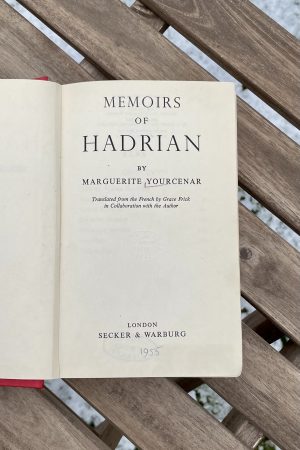
I read this famous 1951 fictional memoir in the 1954 translation by Grace Frick, in a London Library volume which has been borrowed more than two dozen times before I was born. It takes the form of a letter written by Hadrian to Marcus Aurelius, reflecting on his life.
This book has been recommended to me several times, is well-loved by friends, and highly rated on Goodreads. It’s therefore a bit awkward to admit that I didn’t really enjoy it.
There is much to like: I took numerous quotations from the book and enjoyed its reflective and somewhat melancholy tone, especially towards the end. However, for reasons I can quite put my finger on, I was never quite able to suspend my disbelief and become absorbed in this book. I kept questioning what was fact and what was fiction, and whether Hadrian really would have seen things in the way Yourcenar suggests. This is partly because my knowledge of Roman history is weak.
The overall effect was that I felt like I read this at a remove, rather than becoming emotionally involved. The result of that was that it felt more like studying a text than becoming immersed in a novel. While that’s not an experience I’m totally averse to, it isn’t what I expected or hoped for from this book.
I often think that we only connect with books if they find us in the right mood. Perhaps I just read it at the wrong time.
This post was filed under: What I've Been Reading, Alwyn Turner, Armando Iannucci, Cecil Woodham-Smith, David Sedaris, Fannie Flagg, Florence Nightingale, Jean Hanff Korelitz, Lady Hale, Marguerite Yourcenar, Will Storr.